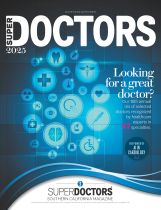American Society of Plastic Surgeons (ASPS)
March 20, 2015
Patients with carpal tunnel syndrome are more than twice as likely to have migraine headaches, reports a study in Plastic and Reconstructive Surgery-Global Open®, the official open-access medical journal of the American Society of Plastic Surgeons (ASPS).
The association also runs in the other direction, with migraine patients having higher odds of carpal tunnel syndrome, according to research by Dr. Huay-Zong Law and colleagues of University of Texas Southwestern Medical Center at Dallas. The findings add a new piece of evidence in the ongoing debate over the use of nerve decompression surgery as a treatment for migraine headaches.
Association between Carpal Tunnel Syndrome and Migraine
The researchers analyzed data from nearly 26,000 Americans responding to a national health survey. Among other questions, participants were asked whether they had had carpal tunnel syndrome during the past year or "severe headache or migraine" during the past three months. Patients with carpal tunnel syndrome have symptoms such as hand numbness and weakness, resulting from pressure on the median nerve in the wrist.
Based on these definitions, 3.7 percent of respondents had carpal tunnel syndrome and 16.3 percent had migraine headache. Associations between these two conditions were analyzed, with adjustment for patient- and health-related risk factors.
The results suggested that people with migraine were more likely to have carpal tunnel syndrome, and vice versa. Migraine was present in 34 percent of respondents with CTS, compared to 16 percent of those without CTS. After adjustment for other factors, the odds of having migraine were 2.6 times higher for those with CTS.
Carpal tunnel syndrome was present in eight percent of participants with migraine versus three percent of those without migraine. On adjusted analysis, the odds of having CTS were about 2.7 times higher for those with migraine.
The two conditions had some shared risk factors-especially female sex, obesity, diabetes, and smoking. Carpal tunnel syndrome was associated with older age and migraine with younger age. Both conditions were less common in Asians, and CTS was less common in Hispanics. The associations between CTS and migraine were independent of all of these factors.
Could Migraine Indicate Higher Future Risk of CTS?
Both CTS and migraines are common conditions with high costs and disability. The contributing causes of both conditions are "poorly understood." Carpal tunnel syndrome is the most common of a group of related conditions called compression neuropathies, with symptoms related to pressure on nerves.
Historically, migraine has not been considered to be a compression neuropathy. Dr. Law and colleagues write, "Recently, however, there is some evidence that migraine headache may be triggered by nerve compression in the head and neck, with some patients responding to nerve decompression by surgical release."
Some studies have reported improvement in migraine headaches after surgery to relieve pressure on nerves at specific migraine "trigger points." However, this concept remains "controversial" and "heavily debated," according to the authors.
The new study is the first to show an association between CTS and migraine. The nature of the connection remains unclear-the two conditions may share some "common systemic or neurologic risk factor," the researchers write.
Noting that migraine tends to occur at younger ages and CTS at older ages, Dr. Law and coauthors call for further studies to determine whether migraine headache may be an "early indicator" of patients who are more likely to develop CTS in the future. If so, such a connection "would allow for earlier diagnosis and treatment, or even prevention, of CTS by modification of risk factors," they conclude.
About ASPS
The American Society of Plastic Surgeons (ASPS) is the world's largest organization of board-certified plastic surgeons. Representing more than 7,000 Member Surgeons, the Society is recognized as a leading authority and information source on aesthetic and reconstructive plastic surgery. ASPS comprises more than 94 percent of all board-certified plastic surgeons in the United States. Founded in 1931, the Society represents physicians certified by The American Board of Plastic Surgery or The Royal College of Physicians and Surgeons of Canada. ASPS advances quality care to plastic surgery patients by encouraging high standards of training, ethics, physician practice and research in plastic surgery.
About PRS Global Open
Plastic and Reconstructive Surgery-Global Open (PRS GO) is a companion journal to the American Society of Plastic Surgeons' flagship publication, Plastic and Reconstructive Surgery. PRS GO is an open access, rigorously peer-reviewed, international journal focusing on global plastic and reconstructive surgery. PRS GOeducates and supports plastic surgeons globally to provide the highest quality patient care and maintain professional and ethical standards through education, research, and advocacy.
About Wolters Kluwer Health
Wolters Kluwer Health is a leading global provider of information, business intelligence and point-of-care solutions for the healthcare industry. Serving more than 150 countries and territories worldwide, Wolters Kluwer Health's customers include professionals, institutions and students in medicine, nursing, allied health and pharmacy. Major brands include Health Language®, Lexicomp®, Lippincott Williams & Wilkins, Medicom®, Medknow, Ovid®, Pharmacy OneSource®, ProVation® Medical and UpToDate®.
Wolters Kluwer Health is part of Wolters Kluwer, a market-leading global information services company. Wolters Kluwer had 2012 annual revenues of €3.6 billion ($4.6 billion), employs approximately 19,000 people worldwide, and maintains operations in over 40 countries across Europe, North America, Asia Pacific and Latin America. Follow our official Twitter handle: @WKHealth.

